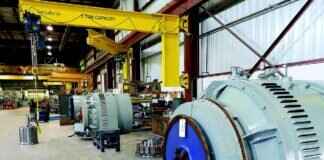This article explores effective strategies to minimize vape juice consumption while maintaining satisfaction, ultimately helping users save money without sacrificing their vaping experience. With the rising costs of vaping products, many users are looking for ways to cut back on their vape juice usage. By implementing a few simple techniques, vapers can enjoy their experience while being more economical.
What Are the Benefits of Reducing Vape Juice Consumption?
Understanding the advantages of cutting down on vape juice can motivate users to make changes. Reduced costs, improved health, and extended device life are key benefits worth considering. By consuming less vape juice, users can allocate funds to other areas of their lives, leading to better financial health.
How Can You Choose the Right Nicotine Level?
Selecting the appropriate nicotine level can significantly impact your vaping experience. Understanding nicotine concentrations can help you reduce consumption while still satisfying your cravings.
- Understanding Nicotine Strengths: Nicotine strengths are typically measured in milligrams per milliliter (mg/ml). Knowing the differences can guide users in selecting a level that balances satisfaction and reduction in usage.
- High vs. Low Nicotine Levels: High nicotine levels may lead to quicker satisfaction, while lower levels can encourage longer puffs and thus more juice consumption. Finding the right balance is essential for effective reduction.
- Gradual Reduction Techniques: Gradually lowering nicotine levels can help users adjust without feeling deprived. This method can make the transition smoother and more sustainable in the long run.
Choosing the Right Vape Device
The type of vape device you use can influence juice consumption. Some devices are more efficient than others, impacting how much juice is used per puff. Opting for devices designed for lower consumption can lead to significant savings over time.
What Are Some Effective Vaping Techniques to Save Juice?
Adopting specific vaping techniques can lead to significant savings. Techniques such as taking shorter puffs or adjusting wattage can help reduce overall juice consumption.
- Shorter Puffs vs. Longer Puffs: Taking shorter puffs can decrease the amount of vape juice consumed while still delivering a satisfying experience. Experimenting with puff duration can lead to better savings.
- Adjusting Your Device Settings: Tweaking the wattage and temperature settings on your vape can optimize juice usage. Lower settings often lead to less juice being vaporized, helping to extend your supply.
How Can Flavor Choices Impact Vape Juice Usage?
The flavors you choose can affect how much vape juice you consume. Some flavors may require more frequent vaping, while others can be more satisfying and longer-lasting.
- Choosing Satisfying Flavors: Opting for flavors that you find particularly satisfying can help reduce the urge to vape frequently. Experimenting with different profiles can lead to a more enjoyable experience.
- Understanding Flavor Strengths: The strength of the flavor can influence how much you vape. Stronger flavors may lead to less frequent use, as they can provide a more intense experience with fewer puffs.
What Role Does Hydration Play in Vaping?
Staying hydrated can enhance your vaping experience. Proper hydration can help reduce cravings and improve throat comfort, leading to less frequent vaping.
- Hydration and Throat Hit: A well-hydrated throat may lead to a smoother vaping experience, reducing the desire to vape more frequently. Understanding this relationship can aid in consumption reduction.
- Hydration Tips for Vapers: Incorporating regular hydration habits, such as drinking water throughout the day, can help manage cravings and improve overall satisfaction with your vaping experience.
How Can You Track Your Vape Juice Usage?
Keeping a record of your vape juice consumption can help identify patterns and areas for reduction. This awareness can lead to more mindful vaping habits.
- Using a Consumption Journal: Maintaining a journal to track daily usage can provide insights into your habits. This practice can highlight opportunities for reduction and help set achievable goals.
- Apps and Tools for Monitoring: There are various apps available that can assist in tracking vape juice consumption. Utilizing technology can simplify the process and promote accountability.
What Are the Financial Benefits of Reducing Vape Juice Consumption?
Understanding the financial implications of reduced vape juice consumption can motivate users to make changes. Savings can add up significantly over time.
- Calculating Monthly Savings: By tracking your vape juice expenses, you can calculate potential savings from reduced consumption. This financial insight can encourage more mindful purchasing habits.
- Investing in Quality Products: Investing in high-quality devices and juice can lead to longer-lasting usage, ultimately saving money over time. Prioritizing quality over quantity can be a wise financial strategy.
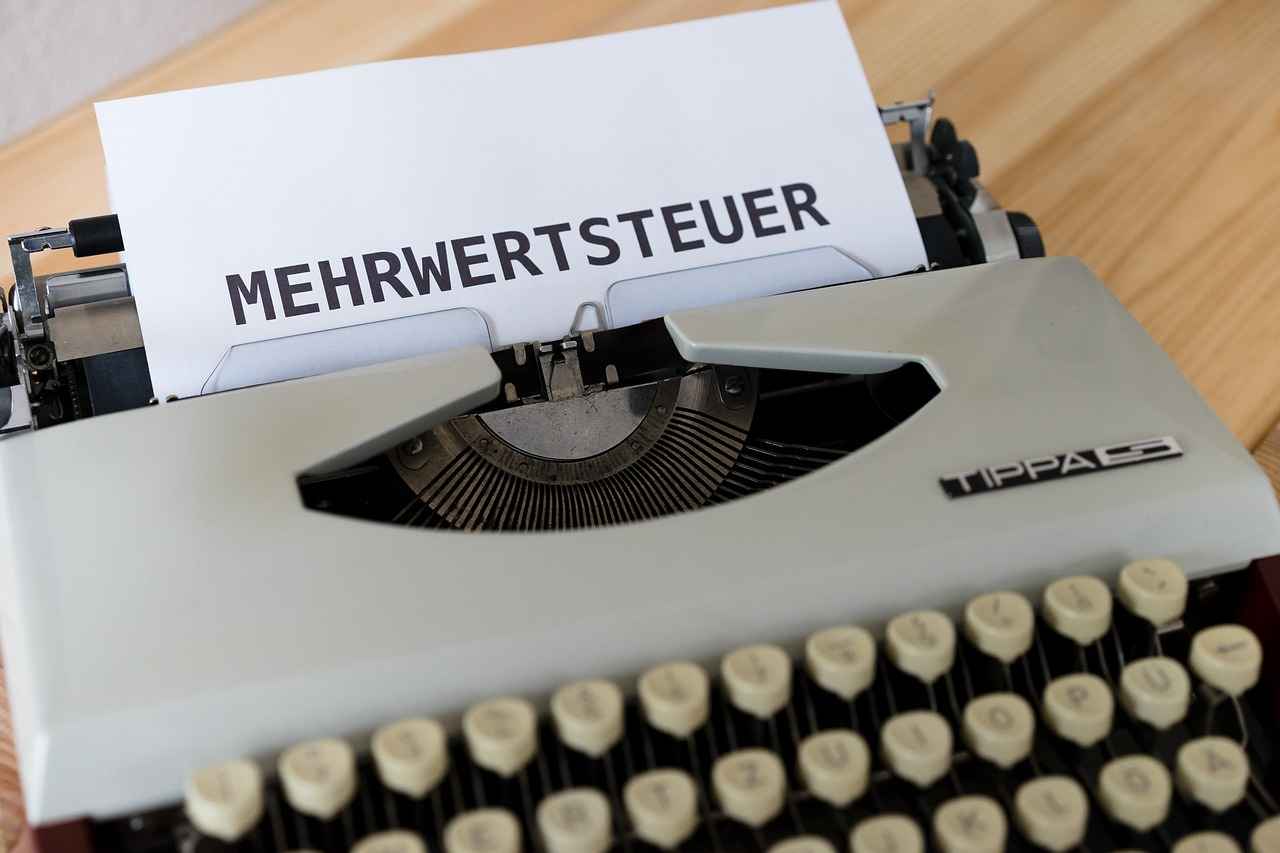
What Are the Benefits of Reducing Vape Juice Consumption?
Reducing vape juice consumption is not just a matter of personal preference; it can lead to significant benefits that enhance both your vaping experience and your overall well-being. Understanding these advantages can motivate users to make informed changes to their habits. Below are some key benefits worth considering:
- Reduced Costs: One of the most immediate benefits of cutting down on vape juice is the financial savings. Vape juice can be expensive, especially for heavy users. By reducing consumption, you can save a substantial amount of money over time. This can free up funds for other activities or products that you enjoy.
- Improved Health: While vaping is often considered a less harmful alternative to smoking, it is not without its health risks. Reducing your vape juice intake can lead to improved lung health and overall well-being. Users may experience fewer respiratory issues and a decrease in the frequency of throat irritation, making for a more enjoyable experience.
- Extended Device Life: Vaping devices require regular maintenance and can suffer from wear and tear due to frequent use. By cutting down on vape juice consumption, you can extend the life of your device. This not only saves you money on replacements but also ensures that your device continues to perform optimally.
- Enhanced Flavor Experience: Over time, constant exposure to vape juice can dull your taste buds. Reducing consumption allows your senses to reset, leading to a more intense and enjoyable flavor experience when you do vape. This can make each session feel more satisfying, reducing the urge to vape frequently.
- Better Control Over Nicotine Intake: For those who are using vaping as a means to quit smoking, reducing vape juice consumption can help users gain better control over their nicotine intake. This gradual reduction can lead to a smoother transition away from nicotine dependency.
- Mindful Vaping: Cutting back on vape juice encourages users to become more mindful of their habits. This awareness can lead to healthier choices and a more intentional approach to vaping, ultimately enhancing the overall experience.
In summary, the benefits of reducing vape juice consumption are multifaceted, impacting not only your wallet but also your health and vaping experience. By understanding these advantages, users can find the motivation to make positive changes, leading to a more satisfying and sustainable approach to vaping.
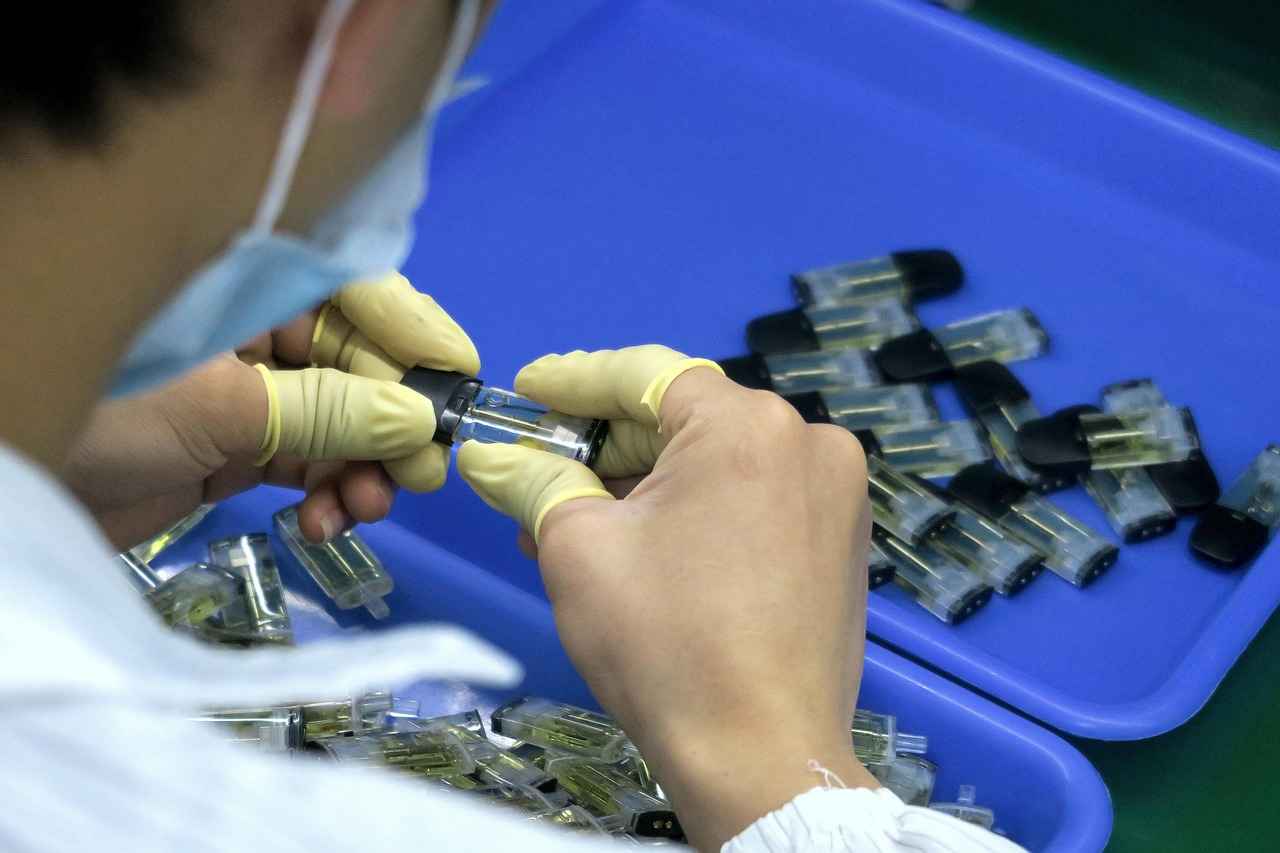
How Can You Choose the Right Nicotine Level?
Choosing the right nicotine level is crucial for an enjoyable vaping experience. It can affect not only your satisfaction but also your overall consumption. Understanding nicotine concentrations allows users to meet their cravings effectively while reducing their intake. This article will delve into how to select the appropriate nicotine level and its impact on your vaping habits.
Nicotine strength is typically measured in milligrams per milliliter (mg/ml). This measurement indicates the concentration of nicotine in your vape juice. Selecting the right strength is essential because it influences how quickly and effectively your cravings are satisfied. Too low a concentration may lead to increased consumption, while too high can result in discomfort.
Determining your ideal nicotine level involves a few key considerations:
- Your Previous Smoking Habits: If you were a heavy smoker, you might prefer higher nicotine concentrations to replicate that experience.
- Your Vaping Device: Different devices deliver nicotine differently. For example, sub-ohm devices tend to vaporize juice more efficiently, allowing for lower nicotine levels.
- Your Personal Preference: Ultimately, your comfort and satisfaction should guide your choice. Experimenting with different strengths can help you find the sweet spot.
High nicotine levels can provide quicker satisfaction, potentially reducing the urge to vape frequently. However, they may also lead to a harsher throat hit, which can be uncomfortable for some users. Conversely, lower nicotine levels encourage longer puffs, which can lead to increased juice consumption. Finding a balance that works for you is key.
If you’re looking to cut down on nicotine, consider a gradual reduction approach. This method allows your body to adjust without feeling deprived. For instance, you might start with a higher nicotine level and slowly switch to lower concentrations over time. This strategy can help mitigate withdrawal symptoms and make the transition smoother.
The nicotine level you choose can significantly impact your overall vaping experience. A suitable level can enhance satisfaction, reduce cravings, and ultimately lead to lower consumption. For instance, if you find yourself frequently reaching for your vape, it may indicate that your nicotine level is too low. On the other hand, if you feel dizzy or lightheaded, it might be time to lower your concentration.
Finding the right nicotine level offers several benefits:
- Cost Savings: Lower nicotine levels can mean less frequent purchases of vape juice.
- Health Considerations: Reducing nicotine intake can lead to improved health outcomes.
- Enhanced Satisfaction: Properly balanced nicotine levels can enhance your overall vaping experience.
Yes, the flavors you choose can impact your nicotine level. Some flavors may provide a more satisfying experience, allowing you to opt for lower nicotine concentrations. Experimenting with various flavors can help you discover which ones satisfy your cravings without needing high nicotine levels.
In conclusion, selecting the appropriate nicotine level is a vital aspect of your vaping journey. By understanding nicotine strengths, considering your habits, and experimenting with different levels, you can enhance your experience while potentially reducing consumption. This thoughtful approach not only improves satisfaction but also contributes to overall well-being and financial savings.
Understanding Nicotine Strengths
When it comes to vaping, is crucial for both new and experienced users. Nicotine levels, typically measured in milligrams per milliliter (mg/ml), significantly influence the vaping experience. This knowledge can empower users to make informed choices that align with their preferences and goals.
Nicotine strengths refer to the concentration of nicotine in vape juice. Common strengths range from 0 mg/ml (nicotine-free) to 36 mg/ml or more, depending on the brand and formulation. Understanding these levels can help users gauge how much nicotine they are consuming with each puff.
The nicotine level you choose can greatly impact your satisfaction and overall experience. For instance:
- High Nicotine Levels: Typically above 12 mg/ml, these levels can provide quick satisfaction, making them suitable for users transitioning from traditional cigarettes.
- Medium Nicotine Levels: Ranging from 6 mg/ml to 12 mg/ml, these strengths offer a balance, suitable for casual vapers who still desire a decent hit.
- Low Nicotine Levels: Levels below 6 mg/ml are often favored by those who enjoy the act of vaping without the intense nicotine hit, allowing for longer sessions.
Selecting the correct nicotine strength is essential for several reasons:
- Satisfaction: The right level can curb cravings and enhance your overall vaping pleasure.
- Cost-Effectiveness: Understanding your nicotine needs can help you avoid unnecessary purchases of higher concentrations that may lead to overconsumption.
- Health Considerations: Lowering nicotine intake can be a step towards reducing dependency, contributing to better health outcomes.
Finding the right nicotine level involves personal experimentation and consideration of your previous habits:
1. Start with your smoking history: If you were a heavy smoker, consider starting with a higher nicotine level.2. Gradually adjust: If you find the high level too intense, slowly decrease your nicotine concentration until you find your sweet spot.3. Monitor cravings: Pay attention to your cravings and satisfaction levels; this will guide your adjustments.
Switching to a different nicotine strength can lead to various effects:
- Higher Strengths: May lead to quicker satisfaction but can also cause dizziness or nausea if the body is not accustomed.
- Lower Strengths: Can result in more frequent vaping sessions as users may feel the need to puff more often to achieve satisfaction.
Understanding nicotine strengths is a vital part of the vaping experience. By selecting the appropriate level, users can balance satisfaction with their consumption habits, leading to a more enjoyable and cost-effective vaping journey.
High vs. Low Nicotine Levels
When it comes to vaping, understanding the balance between nicotine levels and juice consumption is crucial for both satisfaction and cost-effectiveness. This article delves into the nuances of , providing insights into how they affect your vaping experience and overall consumption.
The concentration of nicotine in vape juice can greatly influence how users experience satisfaction and consumption rates. High nicotine levels often lead to a quicker sense of satisfaction, allowing users to feel fulfilled with fewer puffs. This can be particularly beneficial for those looking to reduce their overall vape juice consumption.
On the other hand, lower nicotine levels may encourage users to take longer puffs, potentially leading to increased juice consumption. This is because the body may not receive the same rapid satisfaction, prompting users to extend their vaping sessions. Understanding these dynamics is essential for finding the right balance that suits individual preferences and goals.
To achieve effective reduction in vape juice consumption, users must experiment with different nicotine levels. Here are some key considerations:
- Personal Preference: Each user has unique preferences regarding throat hit and satisfaction. Some may prefer the immediate gratification of high nicotine, while others may enjoy the smoother experience of lower levels.
- Gradual Adjustment: If transitioning from high to low nicotine, consider a gradual reduction strategy. This approach can help manage cravings without feeling deprived, making it easier to adjust over time.
- Device Compatibility: Different vaping devices can deliver nicotine differently. A high-powered device may enhance the effects of high nicotine levels, while lower-powered devices may be better suited for lower concentrations.
Experimentation is key when determining the best nicotine level for your needs. Here are some practical tips:
- Start with a Baseline: Begin with a nicotine level you are accustomed to, and gradually adjust up or down based on your satisfaction and consumption rates.
- Track Your Usage: Keep a record of your vaping habits, noting how different nicotine levels affect your cravings and juice consumption. This can provide valuable insights into your preferences.
- Consult with Experts: Don’t hesitate to seek advice from vaping experts or community forums. Others’ experiences can offer guidance and help you avoid common pitfalls.
Flavor can also play a significant role in how satisfying a vaping experience is. Some flavors may enhance the enjoyment of high nicotine levels, while others may pair better with lower concentrations. Experimenting with various flavors can help you find combinations that provide optimal satisfaction.
Understanding the relationship between nicotine levels and vape juice consumption is essential for anyone looking to optimize their vaping experience. By carefully considering your preferences, gradually adjusting nicotine levels, and experimenting with flavors, you can find the right balance that minimizes consumption while maximizing satisfaction. Remember, the goal is not just to save money but also to enhance your overall vaping experience.
Gradual Reduction Techniques
Transitioning away from high nicotine levels can be a challenging process for many vapers. However, employing can significantly ease this journey. By slowly lowering nicotine levels, users can adapt to changes without experiencing the discomfort of sudden deprivation. This method not only aids in maintaining satisfaction but also promotes a more sustainable vaping habit in the long run.
Many individuals find that abruptly cutting down on nicotine can lead to increased cravings, irritability, and a higher likelihood of relapse. By gradually reducing nicotine levels, users can effectively manage these withdrawal symptoms. This approach allows the body to adjust to lower nicotine intake while still providing a sense of fulfillment.
- Start with a Comfortable Level: Begin by selecting a nicotine level that feels manageable. If you currently use a high concentration, consider moving to a mid-range level before decreasing further.
- Track Your Progress: Keeping a journal of your nicotine intake can help you stay accountable. Documenting your usage can also highlight patterns and motivate you to stick to your plan.
- Set Clear Goals: Establish specific timelines for reducing nicotine levels. For example, aim to lower your nicotine concentration every few weeks until you reach your desired level.
The benefits of a gradual reduction strategy extend beyond just easing withdrawal symptoms. Here are some key advantages:
- Improved Satisfaction: By tapering down slowly, users can still enjoy their vaping experience without feeling deprived.
- Reduced Cravings: A gradual approach can help minimize cravings, making it easier to stick to your reduction plan.
- Long-term Sustainability: This method encourages a more sustainable transition, reducing the likelihood of returning to higher nicotine levels.
When implementing gradual reduction techniques, it’s essential to select the right products. Opt for vape juices that offer a range of nicotine strengths. This flexibility allows users to easily adjust their intake as they progress through their reduction journey.
Utilizing support systems can enhance the effectiveness of gradual reduction. Consider joining online forums or support groups where you can share your experiences and gain insights from others who are on the same path. Additionally, consulting with healthcare professionals can provide tailored advice and strategies.
In summary, gradual reduction techniques are a viable and effective way to lower nicotine consumption while maintaining a satisfying vaping experience. By taking a measured approach, users can navigate their transition smoothly and sustainably, ultimately leading to a healthier lifestyle and significant cost savings over time.
Choosing the Right Vape Device
When it comes to vaping, the device you choose plays a crucial role in your overall experience, particularly in terms of juice consumption. Understanding how different devices work can help you make informed decisions that not only enhance your satisfaction but also save you money in the long run.
The efficiency of a vape device directly influences how much e-liquid is consumed per puff. Some devices, such as sub-ohm tanks, are designed to produce larger clouds and deliver more flavor, but they can also consume juice at a faster rate. Conversely, pod systems and mouth-to-lung (MTL) devices tend to be more efficient, using less juice per puff while still providing a satisfying experience.
- Sub-Ohm Tanks: These devices are popular for their ability to produce large vapor clouds. However, they tend to use more juice, making them less efficient for those looking to conserve e-liquid.
- Pod Systems: These compact devices are designed for convenience and portability. They typically use less juice, making them an excellent choice for users looking to minimize consumption.
- Mouth-to-Lung (MTL) Devices: Ideal for former cigarette smokers, MTL devices mimic the draw of a traditional cigarette and often use less e-liquid per puff.
- Box Mods: These customizable devices allow users to adjust settings such as wattage and temperature, enabling better control over juice consumption.
When selecting a vape device, consider the following factors:
- Your Vaping Style: Are you looking for massive clouds or a more discreet experience? Your answer will guide your choice.
- Nicotine Level: Higher nicotine levels can lead to quicker satisfaction, which may influence your choice of device.
- Flavor Preferences: Some devices are better at delivering flavor than others. If flavor is your priority, choose a device known for its flavor performance.
- Budget: Higher-end devices may offer better efficiency but come at a cost. Determine your budget before making a decision.
Absolutely! Adjusting wattage and temperature settings can optimize juice usage. For instance, lower wattage settings tend to vaporize less juice, extending your supply. Experiment with different settings to find a balance that works for you.
The resistance of your coils can also affect how much juice is consumed. Lower resistance coils (sub-ohm) allow for higher wattage, producing more vapor and consuming more juice. On the other hand, higher resistance coils are more efficient and use less juice, making them an excellent choice for those looking to conserve.
Selecting the right vape device not only enhances your vaping experience but also leads to:
- Cost Savings: By using less juice, you’ll save money in the long run.
- Improved Satisfaction: A device that suits your style will keep you satisfied and reduce the urge to vape excessively.
- Longer Device Lifespan: Using a device that matches your habits can lead to less wear and tear, extending its life.
In summary, understanding the nuances of different vape devices can significantly impact your juice consumption and overall vaping experience. By carefully considering your options and making informed choices, you can enjoy your vaping journey while saving money and maximizing satisfaction.
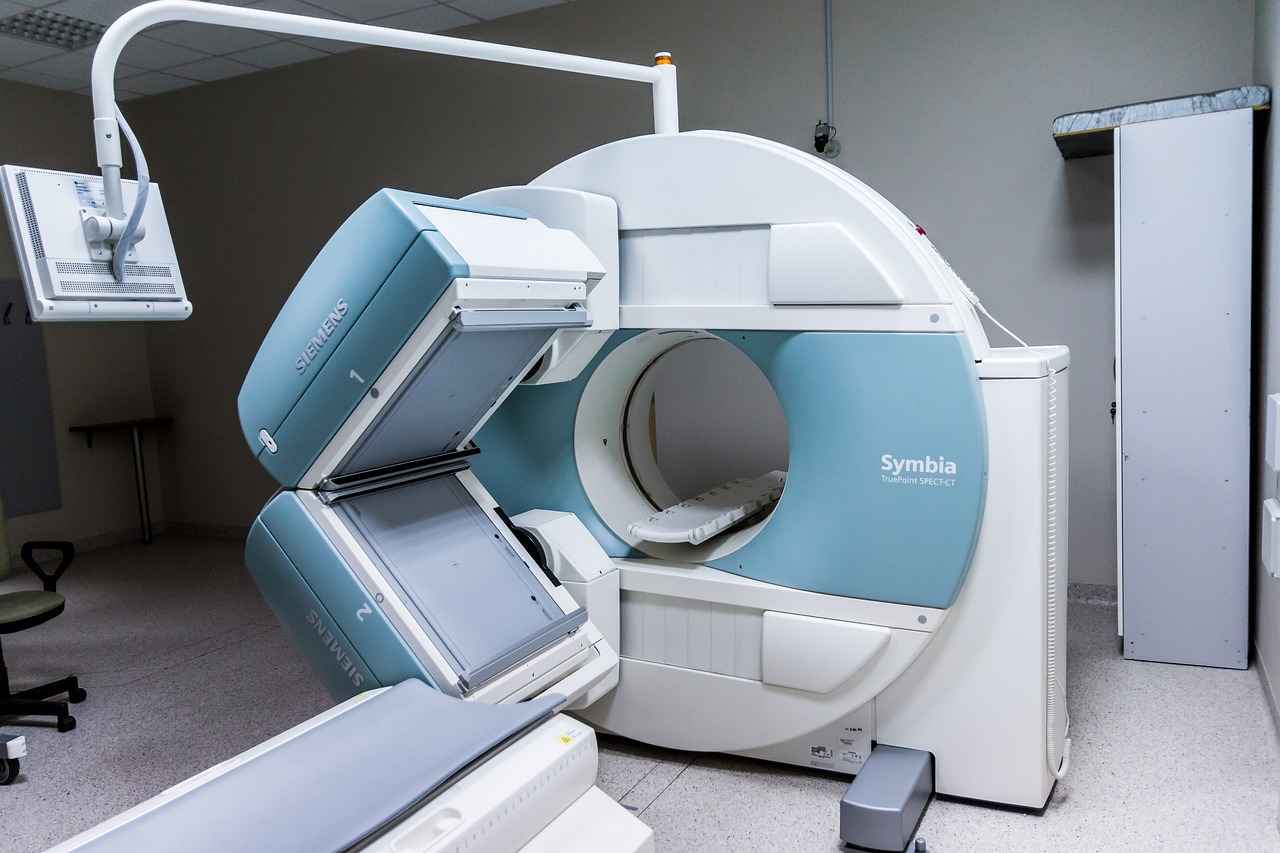
What Are Some Effective Vaping Techniques to Save Juice?
Vaping has become a popular alternative to smoking, but it can also lead to significant expenses if not managed properly. Understanding how to optimize your vaping experience is essential for both satisfaction and cost-effectiveness. In this section, we will explore effective vaping techniques that can help users save juice while still enjoying their favorite flavors.
Adopting specific vaping techniques can lead to significant savings. Techniques such as taking shorter puffs or adjusting wattage can help reduce overall juice consumption. Below are some practical methods to enhance your vaping efficiency:
One of the most straightforward techniques to reduce vape juice consumption is to take shorter puffs. By limiting the duration of each puff, you can significantly decrease the amount of juice used without compromising satisfaction. Experimenting with the length of your puffs can help you find the right balance between enjoyment and conservation.
Another effective strategy is to tweak your vape device settings. Most modern devices allow users to adjust wattage and temperature, which can greatly impact juice consumption. Lowering the wattage can lead to less juice being vaporized, thus extending your supply. Finding the sweet spot for your device can enhance flavor while ensuring you use less juice overall.
The nicotine level in your vape juice can also affect how much you consume. Higher nicotine concentrations may lead to quicker satisfaction, potentially reducing the number of puffs taken. Conversely, lower nicotine levels might encourage longer puffs, which can increase juice usage. Understanding your ideal nicotine strength can help you manage consumption more effectively.
The flavors you choose can significantly affect your vaping habits. Some flavors may be more satisfying than others, leading to less frequent vaping. Opting for rich and fulfilling flavors can help curb the desire to vape continuously. Additionally, experimenting with different flavor profiles can lead to a more enjoyable experience while conserving juice.
Staying properly hydrated can enhance your vaping experience and reduce cravings. When your throat is well-hydrated, you may find yourself less inclined to vape frequently. Incorporating hydration into your daily routine can lead to a smoother vaping experience and ultimately help you consume less juice.
Keeping a record of your vape juice consumption can provide valuable insights into your habits. By maintaining a consumption journal, you can identify patterns and areas for reduction. This awareness can promote more mindful vaping practices and encourage you to make adjustments that lead to savings.
There are various apps available that can assist in tracking your vape juice usage. Utilizing technology can simplify the process, making it easier to stay accountable and aware of your consumption habits. By integrating these tools into your routine, you can gain better control over your vaping experience.
Understanding the financial implications of reduced vape juice consumption can motivate users to make changes. By tracking your expenses and calculating potential savings, you can see how small adjustments can lead to significant financial benefits over time. Investing in quality products can also lead to longer-lasting usage, ultimately saving you money.
In conclusion, by implementing these effective vaping techniques, you can enjoy your vaping experience while also saving money. From adjusting device settings to making mindful flavor choices, every small change contributes to a more efficient and satisfying vaping journey.
Shorter Puffs vs. Longer Puffs
When it comes to vaping, the way you take your puffs can significantly impact your overall experience and consumption of vape juice. One effective strategy for reducing juice consumption without compromising satisfaction is taking shorter puffs. This article will delve into the advantages of shorter puffs, how to implement this technique, and the potential savings that can be realized.
Shorter puffs can lead to a reduction in vape juice usage while still delivering a fulfilling experience. By taking less time to inhale, users can minimize the amount of vapor produced, which in turn decreases the amount of e-liquid consumed. Here are some key advantages:
- Cost Savings: By consuming less vape juice, you can extend the life of your supplies, leading to significant cost savings over time.
- Improved Flavor Retention: Shorter puffs can enhance the flavor experience, as they prevent the juice from overheating and losing its taste.
- Reduced Throat Irritation: Taking shorter puffs can minimize throat irritation, making for a more comfortable vaping experience.
Transitioning to shorter puffs may take some practice, but it can be easily incorporated into your vaping routine. Here are some tips:
- Start Gradually: Begin by consciously reducing the duration of your puffs. You might try cutting your usual puff time by a few seconds and see how it feels.
- Focus on Technique: Instead of long, deep inhales, try taking quick, light puffs. This technique can help you enjoy the flavor without overconsuming juice.
- Monitor Your Consumption: Keep track of how much vape juice you are using. This can help you gauge the effectiveness of your new puffing technique.
Experimentation is key when it comes to finding the right puff duration that suits your needs. Here are some strategies to consider:
- Varying Puff Length: Try different lengths of puffs to find the sweet spot that gives you satisfaction without excessive juice consumption.
- Adjusting Device Settings: If your device allows, consider adjusting the wattage or temperature settings. Lower settings can complement shorter puffs, reducing juice vaporization.
By adopting the shorter puff technique, you may be surprised at how much you can save on vape juice. Here’s how to calculate your potential savings:
- Track Your Usage: Keep a log of how much juice you typically consume in a week and compare it to your usage after implementing shorter puffs.
- Calculate Costs: Multiply your weekly savings by the cost of your vape juice to see how much you could save monthly or annually.
In conclusion, taking shorter puffs is an effective method to reduce vape juice consumption while still enjoying a satisfying vaping experience. By implementing this technique, you can experience not only a decrease in your juice usage but also a potential increase in your overall satisfaction. With practice and awareness, you can optimize your vaping habits and enjoy the financial benefits that come with them.
Adjusting Your Device Settings
When it comes to optimizing your vaping experience, plays a crucial role. Many vapers overlook the impact that wattage and temperature settings can have on juice consumption. By making informed adjustments, you can not only enhance flavor but also extend the life of your vape juice supply.
Wattage settings determine how much power is sent to the coil, affecting both vapor production and juice consumption. Lower wattage settings often lead to less juice being vaporized, which can significantly extend your supply. This is particularly beneficial for those who want to save money without compromising on their vaping experience.
Temperature control is another essential factor that can optimize juice usage. By keeping the temperature at a moderate level, vapers can avoid overheating the e-liquid, which can lead to unnecessary waste. A cooler vape often results in a more flavorful experience while simultaneously conserving juice.
- Experimentation: It’s advisable to experiment with different settings to find what works best for you.
- Flavor Preference: Some flavors may shine at lower wattages, while others may require a bit more power.
- Device Compatibility: Ensure that your device supports temperature control and wattage adjustments for optimal results.
The resistance of your coil also affects how much juice is consumed. Lower resistance coils tend to produce more vapor, which can lead to higher juice consumption. Conversely, higher resistance coils may require higher wattage to achieve the same flavor intensity, making it essential to find a balance that suits your vaping style.
By understanding your device’s settings and the characteristics of your e-liquid, you can make informed choices that lead to better juice management. Consider the following:
- PG vs. VG Ratios: E-liquids with higher VG content tend to produce thicker vapor, which might lead to faster juice consumption. Opting for a balance that suits your preferences can help.
- Flavor Concentration: Stronger flavors can provide a satisfying experience with fewer puffs, reducing overall juice usage.
1. Start at a lower wattage and gradually increase until you find your ideal setting.2. Monitor your juice consumption over a few days to identify patterns.3. Keep a log of your settings and the flavors you use to find the best combinations.
Adjusting your device settings is an effective strategy for reducing vape juice consumption. By experimenting with wattage and temperature, understanding coil resistance, and utilizing e-liquids wisely, you can optimize your vaping experience while saving money. Remember, every adjustment you make can lead to a more satisfying and economical vaping journey.

How Can Flavor Choices Impact Vape Juice Usage?
When it comes to vaping, the flavors you choose play a crucial role in determining not only your overall experience but also how much vape juice you consume. Different flavors can elicit varying cravings and satisfaction levels, which can directly impact your vaping frequency. In this article, we will delve into how flavor choices can affect your vape juice usage and provide insights on selecting the best flavors for a satisfying experience.
Some flavors are inherently more satisfying than others. For instance, rich dessert flavors like chocolate or vanilla can provide a deeper sense of satisfaction, potentially leading to less frequent vaping. On the other hand, lighter flavors such as fruit may leave you wanting more, prompting you to vape more often. By choosing flavors that are more fulfilling, you can reduce your overall consumption.
The intensity of a flavor can also significantly influence your vaping habits. Stronger flavors tend to provide a more robust experience, allowing you to enjoy the taste with fewer puffs. This means that you might find yourself vaping less frequently when you opt for a flavor that delivers a powerful punch. In contrast, milder flavors may require more frequent hits to achieve the same level of satisfaction.
Vaping with a variety of flavors can also impact your consumption. When you have multiple flavors on hand, you might find yourself alternating between them, which can help stave off cravings. Experimenting with different flavor profiles can lead to a more enjoyable experience and may help you find that perfect balance between satisfaction and consumption.
Mixing flavors can be another effective strategy. By combining flavors that complement each other, you can create a unique vaping experience that keeps you engaged. This method can help you feel satisfied with fewer puffs, ultimately reducing your juice consumption. For example, a blend of mint and chocolate can provide a refreshing yet rich experience.
Your personal preferences play a significant role in how flavors affect your vaping habits. Psychological factors, such as associations with certain flavors, can also influence your cravings. If you associate a particular flavor with positive experiences, you may find yourself reaching for it more often. Understanding these connections can help you make more informed choices about which flavors to keep in rotation.
The availability of your favorite flavors can impact your consumption as well. If certain flavors are hard to find or expensive, you may be less likely to indulge in them frequently. This can lead to a decrease in overall juice consumption. Consider exploring local vape shops or online retailers to find the best deals on your preferred flavors.
In summary, the flavors you choose can significantly impact your vape juice consumption. By opting for satisfying, intense flavors and exploring variety, you can reduce the frequency of your vaping sessions while still enjoying a fulfilling experience. Understanding your personal preferences and the psychological factors at play can further enhance your vaping journey. Ultimately, making informed flavor choices can lead to a more satisfying and economical vaping experience.
Choosing Satisfying Flavors
When it comes to vaping, the flavors you choose can significantly impact your overall experience and consumption habits. Selecting flavors that resonate with your personal preferences not only enhances satisfaction but can also help in reducing the frequency of your vaping sessions. By experimenting with various flavor profiles, you may discover combinations that are not only enjoyable but also more fulfilling, ultimately leading to a more satisfying vaping experience.
The flavors you opt for play a crucial role in how often you feel the need to vape. Some flavors are more satisfying than others, which can lead to less frequent use. For example, rich and complex flavors often provide a more intense experience, making it easier to satisfy cravings with fewer puffs. On the other hand, lighter or less satisfying flavors may leave you wanting more, leading to increased consumption.
One of the best ways to find satisfying flavors is through experimentation. Trying out different flavor profiles—such as fruity, dessert-like, or menthol varieties—can reveal personal favorites that keep you engaged and satisfied. This exploration can be both enjoyable and rewarding, as you may discover flavors that you never thought you would like.
- Consider Your Taste Preferences: Think about the foods and drinks you enjoy. If you love sweet desserts, you might gravitate towards cake or candy-flavored vape juices.
- Balance Complexity with Satisfaction: Flavors that are rich in complexity may provide a more fulfilling experience. For instance, a blend of various fruits can offer a layered taste that keeps your palate engaged.
- Try Seasonal Flavors: Seasonal flavors, such as pumpkin spice in the fall or mint during the winter, can add excitement to your vaping routine and keep things fresh.
The strength of the flavor can also influence your vaping habits. Stronger flavors may lead to less frequent use, as they can deliver a more intense experience with fewer puffs. Conversely, milder flavors might encourage you to vape more often to achieve the desired satisfaction. It’s essential to find a balance that works for you, as this can significantly impact your overall consumption.
To maximize your flavor enjoyment, consider the following tips:
- Vape at the Right Temperature: Adjusting the temperature settings on your device can enhance flavor delivery. Experimenting with lower temperatures can bring out more nuanced flavors, making your vaping experience more enjoyable.
- Use Quality E-Liquids: Investing in high-quality e-liquids can make a significant difference in flavor satisfaction. Premium brands often use better ingredients, resulting in richer and more authentic flavors.
- Stay Hydrated: Proper hydration can improve your taste perception. Drinking water regularly can help keep your taste buds functioning optimally, allowing you to enjoy flavors more fully.
Ultimately, choosing flavors that you find particularly satisfying can help reduce the urge to vape frequently. By focusing on flavors that deliver a fulfilling experience, you may find yourself reaching for your device less often. This not only aids in reducing consumption but can also lead to significant cost savings over time.
In conclusion, the flavors you choose can greatly influence your vaping habits. By selecting satisfying flavors and experimenting with different profiles, you can enhance your experience while also reducing your overall consumption. This approach not only leads to a more enjoyable vaping journey but also contributes to better financial management and health outcomes.
Understanding Flavor Strengths
When it comes to vaping, the flavor strength plays a crucial role in determining not only the satisfaction level but also the frequency of use. Many users may not realize that the intensity of the flavor can significantly influence how much vape juice they consume. This article delves into the nuances of flavor strengths and their impact on vaping habits.
Flavor strength can be categorized into various levels, ranging from mild to intense. Stronger flavors tend to provide a more pronounced experience, which can lead to fewer puffs being needed to achieve satisfaction. Conversely, milder flavors may require users to vape more frequently to reach the same level of enjoyment. This relationship can be vital for those looking to reduce their vape juice consumption.
Stronger flavors often deliver a more concentrated taste that can satisfy cravings quickly. For example, a robust fruit or dessert flavor may provide an intense sensory experience, allowing users to feel fulfilled with just a few puffs. As a result, users may find themselves reaching for their devices less often, ultimately leading to a decrease in overall juice consumption.
- Reduced Consumption: Users can achieve satisfaction with fewer puffs, extending the life of their vape juice supply.
- Cost-Effective: By consuming less juice, users can save money on their vaping expenses.
- Enhanced Experience: Strong flavors can provide a more enjoyable and memorable vaping experience, making it easier to resist the urge to vape frequently.
Absolutely! Many vapers find that their flavor preferences evolve as they gain experience. Initially, users might gravitate towards sweeter or more intense flavors, but over time, they may develop a taste for subtler, more complex profiles. This shift can lead to changes in consumption patterns, as users may discover that they prefer flavors that offer a satisfying experience without the need for constant vaping.
To find the right balance of flavor strength, consider the following tips:
- Try Different Brands: Different manufacturers may use varying formulations, which can affect flavor intensity.
- Mix and Match: Combining flavors can create unique experiences that may satisfy cravings more effectively.
- Adjust Nicotine Levels: Sometimes, altering the nicotine concentration can enhance the perceived strength of the flavor.
Ultimately, personal taste is subjective. What one user finds satisfying, another may not. Therefore, it’s essential to explore a variety of flavor strengths to determine what works best for you. By paying attention to how different flavors influence your vaping habits, you can make informed choices that align with your preferences and goals.
Understanding flavor strengths is key to optimizing your vaping experience. By selecting stronger flavors, you may find that you can reduce your consumption while still enjoying the satisfaction you seek. Experiment with different flavors and strengths to discover what best suits your palate and helps you achieve your vaping goals.
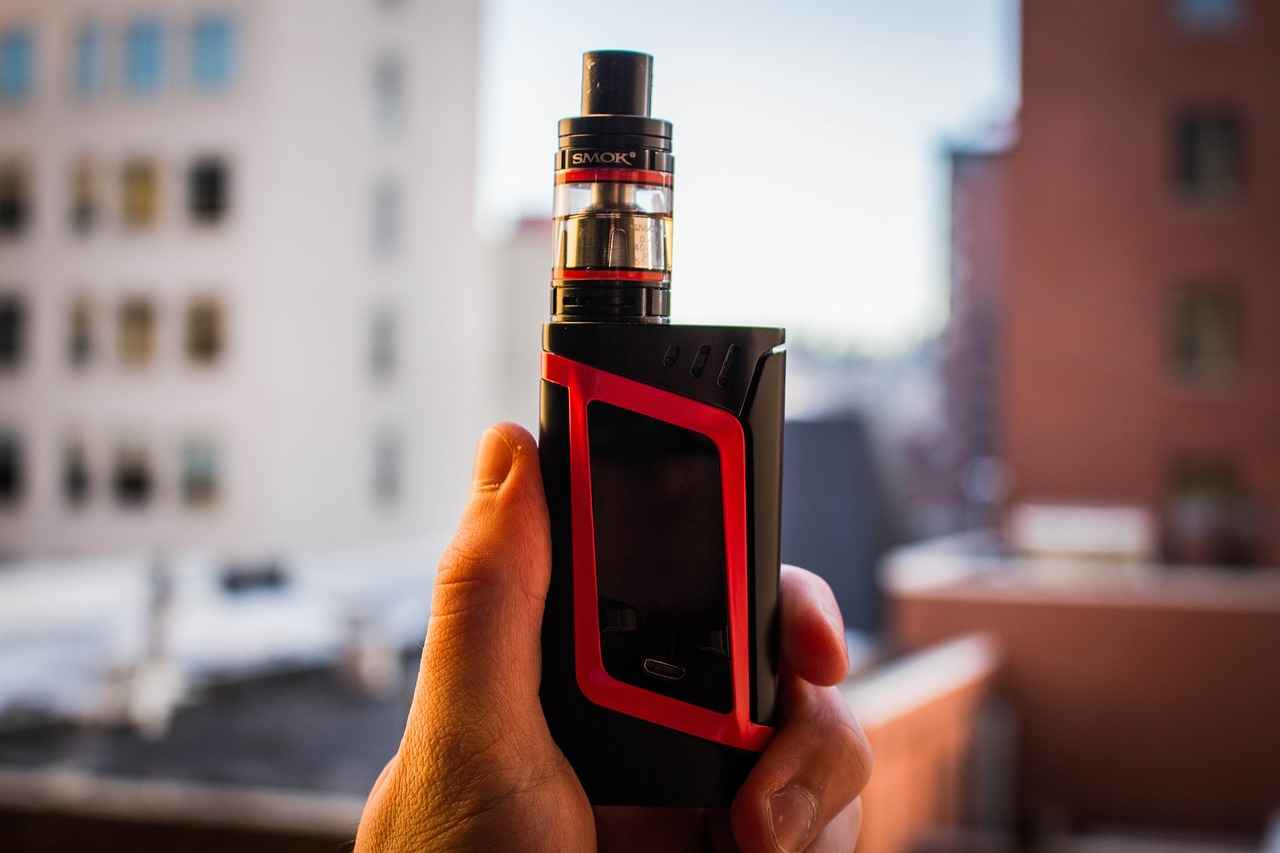
What Role Does Hydration Play in Vaping?
Hydration is a crucial aspect of maintaining overall health, and it plays a significant role in enhancing the vaping experience. Many vapers may overlook the importance of staying hydrated, but it can profoundly influence both comfort and satisfaction during vaping sessions.
Proper hydration can lead to a more enjoyable vaping experience. When the body is adequately hydrated, it can help reduce cravings for nicotine and improve throat comfort. This means that vapers may find themselves reaching for their devices less frequently, resulting in lower vape juice consumption.
The throat hit is a vital component of the vaping experience. A well-hydrated throat allows for a smoother inhale and exhale, which can enhance satisfaction. When the throat is dry, it can lead to discomfort, prompting users to vape more often to alleviate the irritation. Staying hydrated can mitigate this issue, making each puff more enjoyable.
- Dry Throat: A persistent dry throat can indicate that you need more water.
- Increased Cravings: If you find yourself craving your vape more often, dehydration might be a contributing factor.
- Fatigue: Feeling tired can also be a sign that your body needs more fluids.
Incorporating hydration habits into your daily routine can significantly improve your vaping experience. Here are some practical tips:
- Drink Water Regularly: Aim to drink at least eight glasses of water a day. Carry a water bottle to remind yourself to hydrate.
- Limit Caffeinated Beverages: Caffeine can lead to dehydration, so try to balance your intake with plenty of water.
- Monitor Your Body: Pay attention to signs of dehydration and adjust your fluid intake accordingly.
Staying hydrated can lead to more mindful vaping habits. When you are not constantly dealing with a dry throat or discomfort, you may find that you vape less frequently. This can help you save money on vape juice while still enjoying the experience. Additionally, being mindful of your hydration can encourage you to take breaks between puffs, further extending the life of your vape juice.
Hydration can also affect how you perceive flavors while vaping. A well-hydrated palate allows for better taste sensations, making flavors more vibrant and enjoyable. Conversely, dehydration can dull your taste buds, leading to a less satisfying experience. By ensuring that you are adequately hydrated, you can enhance your overall enjoyment of different vape juice flavors.
In summary, staying hydrated is essential for vapers looking to enhance their experience. From improving throat comfort to reducing cravings, proper hydration can lead to a more satisfying and economical vaping journey. By following the tips provided and making hydration a priority, you can enjoy a smoother, more enjoyable vaping experience.
Hydration and Throat Hit
When it comes to vaping, many users focus on the flavor and nicotine content, often overlooking the crucial role of hydration. Hydration plays a significant role in enhancing your vaping experience, especially when it comes to the sensation in your throat, known as the throat hit. A well-hydrated throat can lead to a smoother vaping experience, ultimately reducing the desire to vape more frequently. Understanding this relationship not only aids in consumption reduction but can also improve overall satisfaction.
Staying properly hydrated is essential for everyone, but it holds particular significance for vapers. When you vape, the vapor can dry out your throat, leading to discomfort and irritation. This discomfort may prompt users to vape more frequently in search of relief. By maintaining adequate hydration, you can mitigate these effects, allowing for a more enjoyable experience.
The throat hit is a critical aspect of vaping that many users seek to optimize. It refers to the sensation felt in the throat when inhaling vapor. A well-hydrated throat can significantly enhance this sensation, making it feel smoother and more satisfying. Conversely, a dry throat can lead to a harsher hit, prompting users to adjust their vaping habits, often leading to increased consumption.
- Drink Water Regularly: Aim to drink at least eight glasses of water a day. This helps keep your throat moist and reduces irritation.
- Limit Caffeinated Beverages: Caffeine can be dehydrating. Opt for herbal teas or water instead.
- Use a Humidifier: If you’re in a dry environment, consider using a humidifier to add moisture to the air.
- Incorporate Hydrating Foods: Foods with high water content, like fruits and vegetables, can also contribute to your hydration levels.
Keeping track of your hydration can be as simple as setting reminders to drink water throughout the day. You can also use apps designed to help you monitor your fluid intake. By being mindful of your hydration, you can ensure that your throat remains comfortable, enhancing your overall vaping experience.
Staying hydrated while vaping offers several benefits:
- Improved Throat Comfort: A hydrated throat feels more comfortable and reduces the harshness often associated with vaping.
- Reduced Cravings: Proper hydration can help manage cravings, leading to less frequent vaping.
- Enhanced Flavor Experience: A well-hydrated throat can improve your ability to taste the flavors in your vape juice, making each puff more enjoyable.
Absolutely! By understanding the connection between hydration and throat comfort, vapers can make conscious efforts to stay hydrated. This can lead to a more satisfying experience with fewer puffs, ultimately reducing overall vape juice consumption. Users who prioritize hydration often find themselves vaping less frequently and enjoying their sessions more.
In conclusion, hydration is a crucial element that can significantly impact your vaping experience. By keeping your throat well-hydrated, you not only enhance your throat hit but also reduce the urge to vape more often. Implementing simple hydration strategies can lead to a more enjoyable and satisfying vaping experience, helping you to manage your consumption effectively.
Hydration Tips for Vapers
Staying properly hydrated is essential for everyone, but it holds particular significance for vapers. Incorporating regular hydration habits, such as drinking water throughout the day, can play a crucial role in enhancing your overall vaping experience. Not only does hydration help manage cravings, but it also improves throat comfort, making your puffs more enjoyable.
When you vape, the vapor can lead to a dry throat and mouth. This discomfort may prompt users to vape more frequently, thinking it will alleviate the dryness. However, this can result in increased juice consumption. Staying hydrated can mitigate these effects by providing moisture to your throat and mouth, thus reducing the urge to vape.
The general recommendation for water intake is about 8 glasses (64 ounces) a day, but individual needs may vary. Factors such as activity level, climate, and personal health can influence hydration needs. To ensure you’re drinking enough water, consider the following:
- Listen to Your Body: Pay attention to signs of thirst and dry mouth.
- Set Reminders: Use your phone to remind you to drink water regularly.
- Flavor Your Water: If plain water doesn’t appeal to you, try adding fruits or herbs for a refreshing twist.
Yes, staying hydrated can significantly help manage cravings. When you feel the urge to vape, drinking a glass of water can distract you and help satisfy your body’s need for moisture rather than nicotine. This simple habit can lead to a more satisfying vaping experience while reducing the overall quantity of juice consumed.
Incorporating hydration into your vaping routine can also enhance your technique. A well-hydrated throat allows for a smoother throat hit, which can make each puff feel more satisfying. Here are some tips to optimize your hydration:
- Drink Water Before Vaping: Having a glass of water before you vape can prepare your throat and enhance your enjoyment.
- Choose Hydrating Foods: Foods with high water content, like fruits and vegetables, can also contribute to your hydration levels.
- Limit Dehydrating Beverages: Reduce intake of caffeinated or alcoholic drinks, as they can lead to dehydration.
Recognizing the signs of dehydration is vital for vapers. Common symptoms include:
- Dry Mouth: A persistent dry feeling in your mouth can indicate dehydration.
- Fatigue: Feeling unusually tired can be a sign that your body needs more fluids.
- Headaches: Dehydration can lead to headaches, which may increase your desire to vape.
Here are some practical tips to ensure you maintain optimal hydration levels:
- Carry a Water Bottle: Keep a refillable water bottle with you to make drinking water convenient.
- Track Your Intake: Use apps or journals to monitor your daily water consumption.
- Incorporate Hydration Breaks: Take short breaks during your vaping sessions to drink water.
Incorporating these hydration tips into your daily routine can significantly enhance your vaping experience. By staying adequately hydrated, you can manage cravings more effectively, improve throat comfort, and ultimately reduce your vape juice consumption, leading to both financial savings and a more satisfying vaping experience.
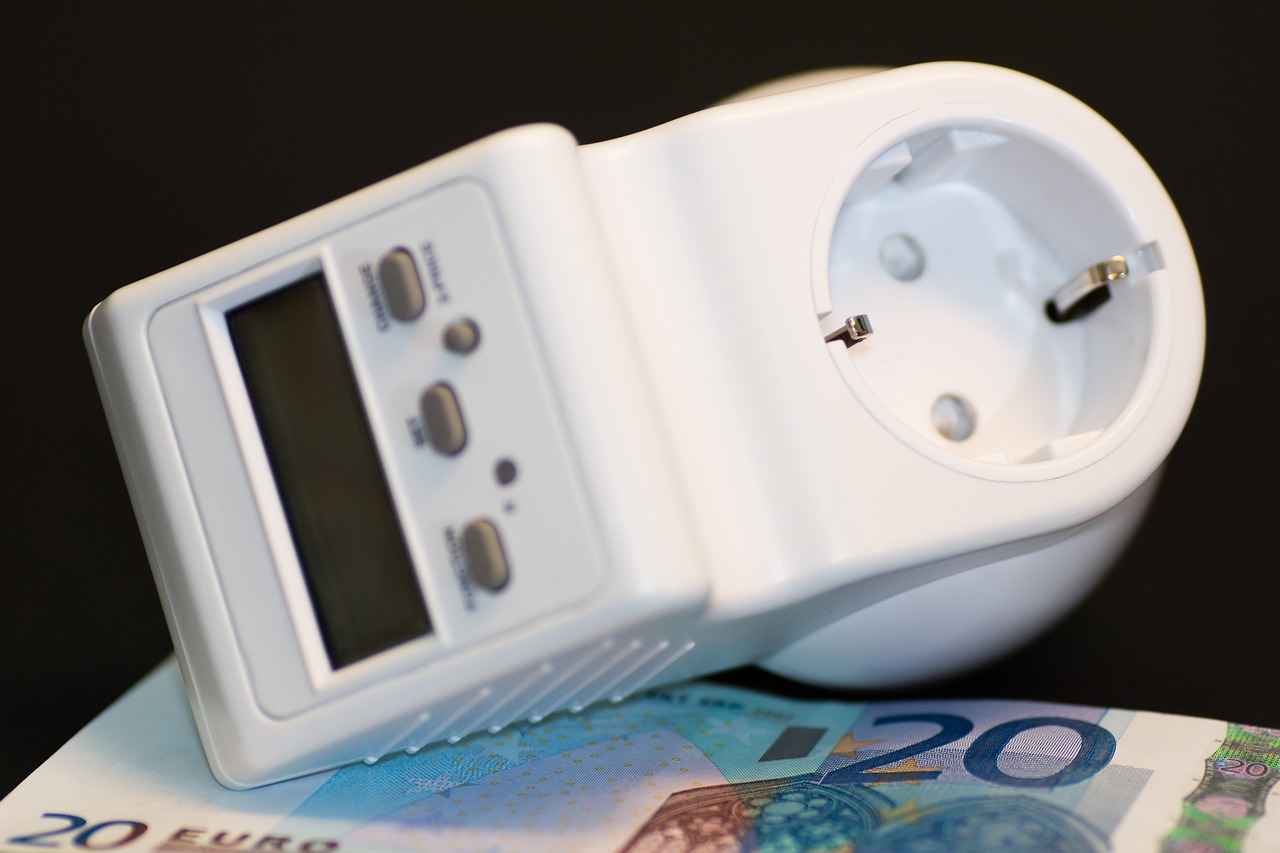
How Can You Track Your Vape Juice Usage?
Tracking your vape juice usage is an essential step towards becoming a more mindful vaper. By keeping a detailed record, you can identify patterns in your consumption, which can lead to effective strategies for reducing your vape juice intake. This awareness not only promotes healthier habits but also helps save money in the long run.
Understanding your vape juice consumption can reveal significant insights about your habits. By monitoring how much you vape, you can:
- Identify Consumption Patterns: Recognizing when and how often you vape can help pinpoint triggers that lead to excessive use.
- Set Realistic Goals: With clear data on your habits, you can establish achievable targets for reducing your vape juice intake.
- Enhance Mindfulness: Being aware of your consumption encourages more intentional vaping, which can lead to healthier choices.
There are various methods to track your vape juice consumption effectively:
Maintaining a consumption journal is one of the simplest yet most effective methods. Here’s how to get started:
1. Choose a format: Use a notebook or a digital app.2. Record daily usage: Note the amount of vape juice consumed each day.3. Reflect on triggers: Jot down situations or feelings that prompt you to vape.
This practice not only helps in tracking but also encourages reflection on your habits, allowing for better decision-making.
In today’s digital age, numerous apps are designed to help vapers track their consumption. Some popular options include:
- Vape Tracker: This app allows users to log their daily usage and provides insights into spending habits.
- My Vape Diary: A user-friendly platform that helps you keep track of flavors and nicotine levels along with consumption.
- Custom Spreadsheets: For those who prefer a personalized approach, creating a spreadsheet can offer tailored tracking options.
Using technology can simplify the tracking process and promote accountability in your vaping habits.
Once you start tracking your vape juice usage, you’ll begin to notice several insights:
- Consumption Trends: Identifying peak usage times can help you understand your habits better.
- Cost Analysis: By reviewing your consumption, you can calculate your monthly spending, highlighting areas for potential savings.
- Behavioral Changes: Tracking can reveal emotional triggers or social situations that lead to increased vaping, allowing you to address these factors.
Being aware of your vape juice usage can naturally lead to reduction strategies. Here’s how:
- Mindful Vaping: Awareness fosters mindfulness, encouraging you to vape less frequently and enjoy each puff more.
- Setting Limits: With clear data, you can set daily or weekly limits, making it easier to stick to your goals.
- Identifying Alternatives: Tracking can highlight times when you vape out of habit rather than craving, prompting you to find healthier alternatives.
In conclusion, tracking your vape juice consumption is a powerful tool for anyone looking to reduce their intake. By utilizing journals or apps, you can gain valuable insights into your habits, leading to more mindful vaping practices and significant savings over time.
Using a Consumption Journal
Keeping track of your vaping habits can be an eye-opening experience. One effective method to achieve this is by maintaining a consumption journal. This practice not only helps you monitor your daily usage but also provides valuable insights into your vaping patterns and habits.
A consumption journal serves as a personal log where you can record details about your vaping activities. By documenting your usage, you can identify trends and patterns that may be affecting your overall consumption. Here are some key benefits of maintaining a journal:
- Awareness: Recognizing how much you vape can lead to more mindful consumption.
- Goal Setting: By understanding your habits, you can set realistic goals for reducing usage.
- Identifying Triggers: You may discover situations or emotions that prompt you to vape more frequently.
Starting a consumption journal is simple and can be done in various formats. Here are some practical steps to help you get started:
- Choose Your Format: Decide whether you prefer a physical notebook, a digital document, or a mobile app.
- Record Daily Usage: Note the amount of vape juice consumed each day and the nicotine level.
- Include Context: Document the circumstances around each vaping session, such as time of day, location, and emotional state.
To make the most of your consumption journal, consider tracking the following elements:
- Date and time of each vaping session- Amount of vape juice used (in milliliters)- Nicotine strength of the juice- Duration of each vaping session- Mood or feelings before and after vaping
Once you have a few weeks of data, take the time to analyze your entries. Look for patterns that may indicate when and why you vape:
- Peak Usage Times: Are there specific times when you tend to vape more?
- Emotional Triggers: Do you find yourself vaping during stressful situations or while relaxing?
- Consumption Trends: Are you using more vape juice on certain days compared to others?
With the insights gained from your journal, you can set achievable goals for reducing your consumption. For example, if you notice that you vape more during the weekends, you could aim to cut down on those days gradually. Setting specific, measurable goals can help you stay accountable and motivated.
In addition to a traditional journal, consider using apps designed for tracking vaping habits. These tools can simplify the process by automatically calculating usage trends and providing reminders for your goals. Many of these apps also offer community support, which can be beneficial for motivation.
Maintaining a consumption journal is a valuable strategy for anyone looking to reduce their vape juice usage. By understanding your habits and setting achievable goals, you can make informed decisions that enhance your vaping experience while saving money. Whether you choose a physical journal or a digital app, the key is to stay consistent and reflective in your tracking.
Apps and Tools for Monitoring
As vaping continues to gain popularity, many users are looking for ways to manage their consumption effectively. One of the most useful methods for achieving this is by utilizing vape juice usage. These technological solutions not only help in tracking consumption but also promote accountability, which can lead to healthier habits.
Using apps to monitor your vape juice consumption provides several benefits:
- Accountability: By keeping a record of your usage, you can hold yourself accountable for your vaping habits.
- Insights: Many apps offer analytics that help you understand your consumption patterns, allowing you to make informed decisions.
- Goal Setting: Tracking your usage can help you set and achieve personal goals, whether it’s reducing consumption or saving money.
There are numerous apps available tailored specifically for vaping enthusiasts. Here are a few popular options:
- Vape Tool: This app allows users to log their vape juice consumption and provides detailed statistics on usage trends.
- My Vape: With features that allow users to track flavors, nicotine levels, and consumption rates, this app is ideal for those looking to manage their vaping habits.
- Vape Tracker: This user-friendly app offers customizable tracking options, enabling users to monitor their juice usage and expenses over time.
To maximize the benefits of vape tracking apps, consider the following tips:
- Regular Updates: Make it a habit to update your app daily with your consumption data. This will ensure accurate tracking.
- Analyze Trends: Take time to review the analytics provided by the app. Understanding your habits can help you identify areas for improvement.
- Set Reminders: Use the app’s reminder features to prompt you to check in on your usage or to encourage you to stay within your goals.
Incorporating technology into your vaping routine can streamline the process of monitoring your consumption. By using apps, you can:
- Track Expenses: Many apps allow you to log the cost of your vape juice, helping you keep a close eye on your spending.
- Connect with Community: Some apps feature community forums where users can share tips, experiences, and support each other in their vaping journeys.
- Receive Notifications: Get alerts when you’re approaching your consumption goals, helping you stay on track.
Besides apps, there are other tools that can aid in monitoring vape juice consumption:
- Consumption Journals: Keeping a manual journal can be an effective way to track your habits and reflect on your progress.
- Smart Devices: Some vape devices come equipped with technology that can track usage and sync with apps for a more comprehensive overview.
In conclusion, utilizing your vape juice consumption can significantly enhance your vaping experience. These resources not only promote accountability but also empower users to make informed decisions, ultimately leading to healthier habits and financial savings.

What Are the Financial Benefits of Reducing Vape Juice Consumption?
Understanding the financial implications of reduced vape juice consumption can motivate users to make changes. Savings can add up significantly over time. This article delves into the various financial benefits associated with cutting back on vape juice usage, highlighting how these savings can impact your overall budget.
Many vape users may not realize the financial burden that regular consumption entails. By reducing your vape juice intake, you can experience not only health benefits but also substantial monetary savings. With the rising costs of vape products, every little bit counts.
Calculating potential savings can be eye-opening. For instance, if you typically spend $50 a month on vape juice, reducing your consumption by just 30% could save you $15 monthly. Over a year, that amounts to $180. Imagine what you could do with that extra cash!
In addition to the direct costs of vape juice, there are hidden expenses to consider:
- Device Maintenance: Frequent use can lead to more wear and tear on your devices, resulting in higher replacement costs.
- Accessory Purchases: More vaping often leads to the need for additional accessories like coils and batteries, which can add up quickly.
- Health Costs: While vaping is often marketed as a safer alternative, long-term usage can lead to health issues that may incur medical expenses.
To fully understand the financial impact of your vaping habits, consider tracking your expenses. A simple budgeting app can help you monitor how much you spend on vape juice and related products. By keeping a close eye on your spending, you can identify areas for reduction.
Reducing vape juice consumption not only provides immediate savings but also contributes to long-term financial health. Over time, the cumulative effect of these savings can free up funds for other priorities, such as:
- Investing in Quality Products: By spending less on vape juice, you can invest in higher-quality devices that last longer, ultimately saving you money in the long run.
- Building an Emergency Fund: The money saved can be redirected to build an emergency fund, providing financial security.
- Funding Hobbies or Interests: Perhaps you have a passion project or hobby that requires funding. The savings from reduced vaping can help finance these interests.
Transitioning to a reduced vape juice consumption can be challenging, but it is achievable. Here are some practical tips:
- Set Clear Goals: Establish specific, measurable goals for reducing your vape juice intake.
- Utilize Apps: Leverage technology to track your consumption and spending.
- Find Support: Engage with online communities or friends who share similar goals to stay motivated.
In summary, understanding the financial benefits of reducing vape juice consumption can serve as a powerful motivator for change. By recognizing the potential savings and long-term implications, users can make informed decisions that positively impact their wallets and overall well-being.
Calculating Monthly Savings
When it comes to vaping, many users are often unaware of how their consumption habits can impact their finances. By tracking your vape juice expenses, you can not only gain insight into your spending but also identify potential savings that can arise from reducing your consumption. This financial awareness can serve as a powerful motivator, encouraging more mindful purchasing habits and ultimately leading to substantial savings over time.
To effectively manage your vape juice expenses, start by keeping a detailed log of your purchases. This can include the cost of each bottle of vape juice, the frequency of your purchases, and the amount consumed per week. By analyzing this data, you can calculate your average monthly spending on vape juice.
Once you have a clear picture of your expenses, look for patterns in your consumption. Are there specific flavors or brands that you tend to purchase more frequently? Do you find yourself buying juice impulsively or out of habit? Recognizing these patterns can help you make informed decisions about your purchases, allowing you to cut back on unnecessary spending.
After identifying your spending habits, set achievable savings goals. For instance, if you currently spend $100 a month on vape juice, aim to reduce that amount by 20% over the next few months. This gradual approach can make the process less daunting and more sustainable.
- Switch to DIY Juice: Consider making your own vape juice. This can be significantly cheaper than buying pre-made options, especially if you find yourself going through multiple bottles each month.
- Buy in Bulk: Purchasing larger quantities or bulk packs can often lead to discounts, reducing your overall cost per milliliter.
- Explore Alternative Brands: Research lesser-known brands that offer competitive pricing without sacrificing quality. You may find a new favorite that is easier on your wallet.
As you implement these strategies, keep a close eye on your expenses. At the end of each month, compare your new spending habits to your previous records. This will allow you to see the tangible results of your efforts. For example, if you successfully reduced your spending from $100 to $80, that’s a $20 savings—a significant amount over time.
Understanding the financial implications of your vaping habits can lead to more mindful purchasing decisions. When you know exactly how much you’re spending and how much you could save, you’re less likely to make impulsive purchases. This awareness can help you prioritize quality over quantity, ensuring that you invest in products that offer the best value for your money.
Ultimately, by tracking your vape juice expenses and adopting more mindful consumption habits, you can enjoy significant financial benefits. The savings you accumulate can be redirected towards other areas of your life, whether it’s investing in a higher-quality device, exploring new flavors, or even saving for future goals. Remember, every little bit counts, and being aware of your spending is the first step toward achieving your financial objectives.
Investing in Quality Products
When it comes to vaping, the choices you make regarding your devices and e-liquids can have a significant impact on both your experience and your wallet. is not just about immediate satisfaction; it’s also a long-term strategy that can lead to substantial savings and a better vaping experience overall.
High-quality vape devices are designed for durability and performance. Unlike cheaper alternatives, which may require frequent replacements, quality devices often last much longer, saving you money in the long run. Here are some reasons to consider:
- Durability: Quality devices are built to withstand daily use without breaking down.
- Performance: High-end devices often provide a more satisfying vaping experience due to better vapor production and flavor delivery.
- Safety: Reputable brands prioritize safety features, reducing the risk of malfunctions.
Just as important as the device is the e-liquid you choose. Premium vape juices are crafted with high-quality ingredients, resulting in a more enjoyable flavor and a smoother throat hit. Here’s how investing in quality juice can save you money:
- Flavor Satisfaction: Better quality juices often lead to greater satisfaction, meaning you might vape less frequently.
- Less Waste: High-quality juices are formulated to deliver consistent flavor, reducing the likelihood of wasting juice on unsatisfying experiences.
While the initial cost of quality devices and juices may be higher, the long-term savings can be substantial. Consider the following:
- Reduced Replacement Costs: Fewer replacements mean lower overall spending on devices.
- Lower Juice Consumption: A more satisfying vape can lead to less frequent purchases of e-liquids.
Investing in quality products can elevate your overall vaping experience. Here are some lifestyle benefits:
- Consistency: Quality products provide a more reliable vaping experience, making it easier to enjoy your favorite flavors.
- Community Trust: Using reputable brands can connect you with a community of like-minded vapers who value quality.
With so many options available, knowing what to look for in quality products is essential. Here are some tips:
- Research Brands: Look for brands with positive reviews and a solid reputation in the vaping community.
- Check Ingredients: Quality e-liquids should list their ingredients clearly and avoid harmful additives.
- Warranty and Support: Quality manufacturers often provide warranties and customer support, reflecting their confidence in their products.
In summary, investing in high-quality vape devices and juices not only enhances your vaping experience but also leads to significant long-term savings. By prioritizing quality over quantity, you can enjoy a more satisfying and cost-effective vaping lifestyle.
Frequently Asked Questions
- What are the main benefits of reducing vape juice consumption?
Reducing vape juice consumption can lead to significant savings, improved health, and a longer lifespan for your vaping device. It’s like trimming the fat off your budget while enjoying the perks of a healthier lifestyle!
- How do I choose the right nicotine level for my vape?
Selecting the right nicotine level is crucial for balancing satisfaction and consumption. Higher nicotine levels can provide quick relief, while lower levels encourage longer puffs, so finding that sweet spot can make all the difference!
- What vaping techniques can help save juice?
Adopting techniques like taking shorter puffs or adjusting your device settings can significantly reduce juice usage. Think of it as a game—experimenting with different strategies can lead to major wins!
- How do flavor choices impact my vape juice usage?
The flavors you pick can either tempt you to vape more or keep you satisfied longer. Stronger flavors might mean fewer puffs, so it’s worth trying out different profiles to see what keeps you content!
- Why is hydration important for vapers?
Staying hydrated can enhance your vaping experience by reducing cravings and improving throat comfort. It’s like giving your body a refreshing drink to help it enjoy the ride!
- How can I track my vape juice usage effectively?
Keeping a consumption journal or using apps can help you monitor your habits. This awareness is key to making mindful choices and can lead to better savings over time!
- What financial benefits can I expect from reducing my vape juice consumption?
By cutting down on vape juice, you can save a significant amount of money over time. Tracking your expenses can reveal just how much you can keep in your pocket by being more mindful!













